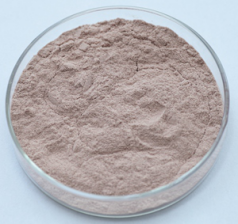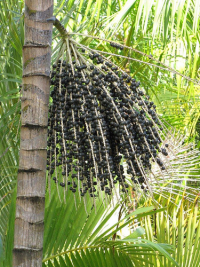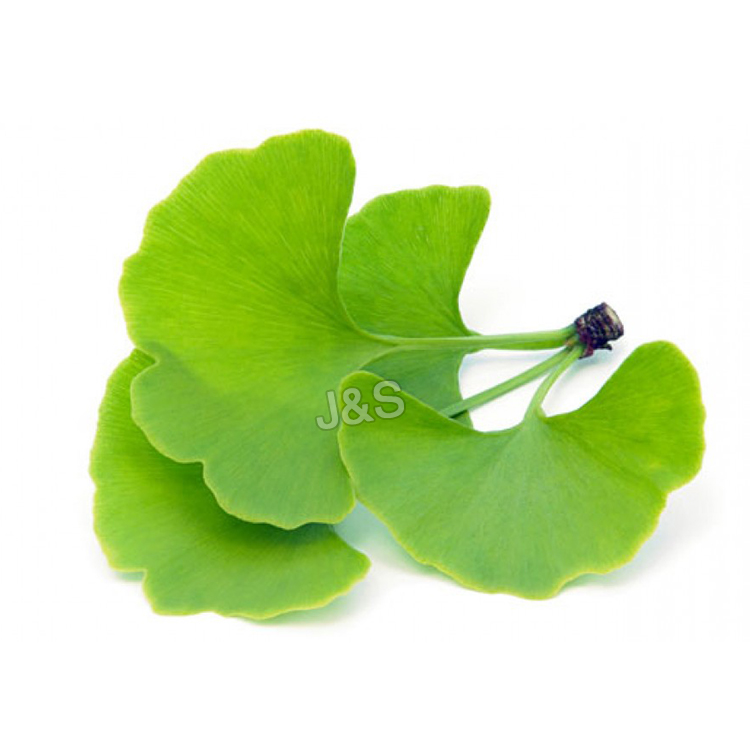Massive Selection for Acai berry extract Manufacturer in America
Massive Selection for Acai berry extract Manufacturer in America Detail:
[Latin Name] Euterpe Oleracea
[Plant Source] Acai Berry from Brazil
[Specifications] 4:1, 5:1, 10:1
[Appearance] Violet Fine Powder
[Plant Part Used]:Fruit
[Particle size] 80 Mesh
[Loss on drying] ≤5.0%
[Heavy Metal] ≤10PPM
[Pesticide residue] EC396-2005, USP 34, EP 8.0, FDA
[Storage] Store in cool & dry area, keep away from the direct light and heat.
[Shelf life] 24 Months
[Package] Packed in paper-drums and two plastic-bags inside.
[Gerneral feature]
- 100% extract from Acai berry fruit;
- Pesticide residue: EC396-2005, USP 34, EP 8.0, FDA;
- Directly import fresh frozen acai berry fruits from Brazil;
- The standard of the heavy mental is strictly according to the
foreign pharmacopoeia USP, EU.
- High standard of the quality of imported raw materials.
- Good water solubility, reasonable price.
[What is Acai berry]
The south American Acai palm(Euterpe oleracea)-known as the tree of life in Brazil-provides a small berry which is growing in fame, particularly following recent studies by well-known herbalists and naturopaths that have categorised it as a “superfood”. Acai berries are extremely rich in antioxidants, vitamins and minerals. The acai berry is also famous for its capacity to support dieting, protect the skin, reduce the risk of cardiovascular disease and prevent the development of certain types of cancer.
[Function]
While there are many different berry and fruit juices on the market, Acai contains the most complete array of vitamins, minerals, and essential fatty acids. Acai contains Vitamin B1 (Thiamin), Vitamin B2 (Riboflavin),
Vitamin B3 (Niacin), Vitamin C, Vitamin E (tocopherol), iron, potassium, phosphorus and calcium. It also contains the essential fatty acids Omega 6 and Omega 9, all the essential amino acids, and more protein than an average egg.
1)Greater Energy and Stamina
2)Improved Digestion
3)Better Quality Sleep
4)High Protein Value
5)High Level of Fiber
6)Rich Omega Content for Your Heart
7)Boosts Your Immune System
8)Essential Amino Acid Complex
9)Helps Normalize Cholesterol Levels
10)Acai Berries Have 33 Times the Antioxidant Power of Red Grapes and Red Wine
Product detail pictures:

Related Product Guide:
Persisting in "High good quality, Prompt Delivery, Aggressive Price", we've established long-term cooperation with shoppers from each overseas and domestically and get new and previous clients' high comments for Massive Selection for Acai berry extract Manufacturer in America , The product will supply to all over the world, such as: Turin, Ireland, Austria, We'd like to invite customers from abroad to discuss business with us. We can provide our clients with high quality products and excellent service. We are sure that we will have good cooperative relationships and make a brilliant future for both parties.
Stem injection is used to kill Rhododendron ponticum in situ. Stems are drilled using 12mm-20mm drill bit, approx 10mm into the stem, then filled with 25% solution of glyphosate.
Title: Pneumococcal infections and vaccination.
4th International Conference on Vaccines & Vaccination
September 24-26, 2014 Valencia, Spain
OMICS International: https://omicsonline.org
Vaccine Conferences: https://conferenceseries.com/immunolog…
Global Medical Conferences: https://conferenceseries.com
Global Pharmaceutical Conferences: https://pharmaceuticalconferences.com
Global Cancer Conferences: https://cancersummit.org
Global Diabetes Conferences: https://diabetesexpo.com
Global Dental Conferences: https://dentalcongress.com
Global Nursing Conferences: https://nursingconference.com
Abstract
Pneumococci are major contributors to morbidity and mortality worldwide. They are the major cause of milder respiratory tract infections such as otitis and sinusitis, but also to more severe invasive infections such as community-acquired pneumonia with associated septicemia and meningitis. Even though being a devastating pathogen, pneumococci are also common colonizers of the upper respiratory tract of healthy children where from they may spread to cause disease. Risk groups for acquiring an invasive pneumococcal infection (IPD) include preschool children and the elderly, as well as immunocompromised individuals, splenectomised, and patients with a previous influenza virus infection. Several bacterial virulence factors have been described for pneumococci of which a major one is the capsular polysaccharide. Depending on differences in these capsular structures so far more than 90 different serotypes have been distinguished. Recently so called conjugated vaccines (PCV) have been introduced into the child hood vaccination program in many countries. These vaccines are based on a limited amount (7, 10 or 13) of the capsular serotypes. In Sweden PCVs were introduced in the whole of Sweden year 2009. Vaccine introduction has led to a reduction in the incidence of IPD in vaccinated children but also to serotype replacementand an increase of non-vaccine type disease.
Biography
Birgitta Henriques Normark is professor and head physician in Clinical microbiology at Karolinska Institute and Karolinska University hospital, as well as head physician at the Public Health Agency of Sweden. She is also vice dean for recruitment at Karolinska Institutet and a board member of the Swedish Research Council, Medicine and Health.Her research focuses on epidemiology, antibiotic resistance and host-microbe interactions in bacterial infections with special focus on pneumococcal epidemicity, molecular epidemiology, and mechanisms of invasive disease, innate immunity and host-microbe interactions determining disease outcome. The research has been published in 136 publications of which 107 are original peer reviewed articles.
The supplier cooperation attitude is very good, encountered various problems, always willing to cooperate with us, to us as the real God.






